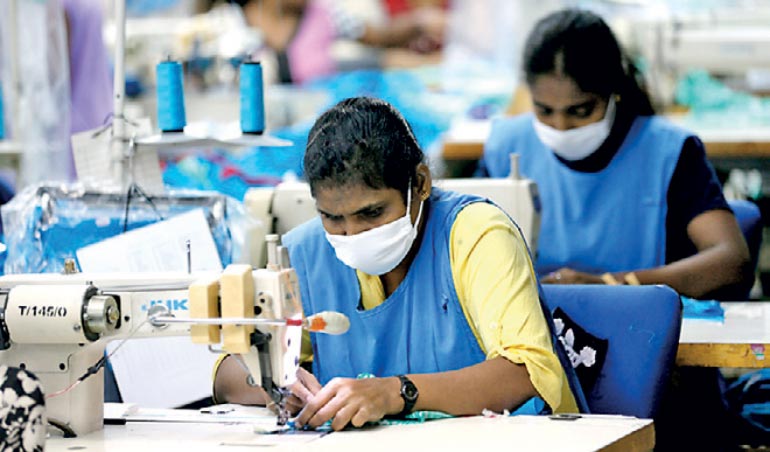Wednesday Feb 18, 2026
Wednesday Feb 18, 2026
Tuesday, 20 December 2022 02:42 - - {{hitsCtrl.values.hits}}

By Charumini de Silva
 Apparel export industry suffered its second consecutive month of decline year-on-year (YoY) in November, but early success has ensured 2022 heading to be a record year.
Apparel export industry suffered its second consecutive month of decline year-on-year (YoY) in November, but early success has ensured 2022 heading to be a record year.
As per Joint Apparel Association Forum (JAAF) provisional data, November exports dropped 9% YoY to $ 425.03 million, as predicted earlier that the market conditions for exports will be challenging in the latter part of the year. In October, exports dropped by 14% to $ 414 million YoY.
JAAF sources said that in November, exports to the US were down by 17% to $ 166.23 million while shipments to the EU (excluding exports to the UK) saw a marginal drop of 3.34% drop to $ 166.23 million, and exports to the UK were fell by 29.33% to $ 40.36 million.
However, JAAF said exports to other countries have recorded an increase of 21% to $ 82.03 million in November 2022 compared to a year ago.
Despite the monthly dip, the first 11 months of apparel exports reached an all-time high figure of $ 5.14 billion, reaffirming the sheer resilience of the private sector-driven industry.
Confirming the apparel industry has not only reverted to pre-COVID resilience but bettered it, the first 11-month haul performance has beaten the previous high of $4.84 billion achieved in 2019, the industry’s best year so far with $ 5.3 billion in exports for the full year.
The first 11 months haul achievement reflects a 12.3% YoY growth, despite the worst economic crisis Sri Lanka has encountered in its 74 years of post-independence.
JAAF sources also noted that the cumulative apparel exports to the three major markets from January to November have soared significantly.
Exports to the US were up 13% to $ 2.14 billion YoY, the EU by 12% to $ 1.54 billion, the UK by 7% to $ 663.79 million and other markets by 16.16% to 784.57 million. The US, EU and the UK comprise about 86% of Sri Lanka’s total apparel exports.
The JAAF officials reiterated that despite impressive exports so far in 2022 industry envisages a 25-30% decline in the remainder of the year. This is mainly due to the economic downturn’s impact on future orders from the US and EU, whilst the war in Ukraine has pushed up logistics and energy costs.